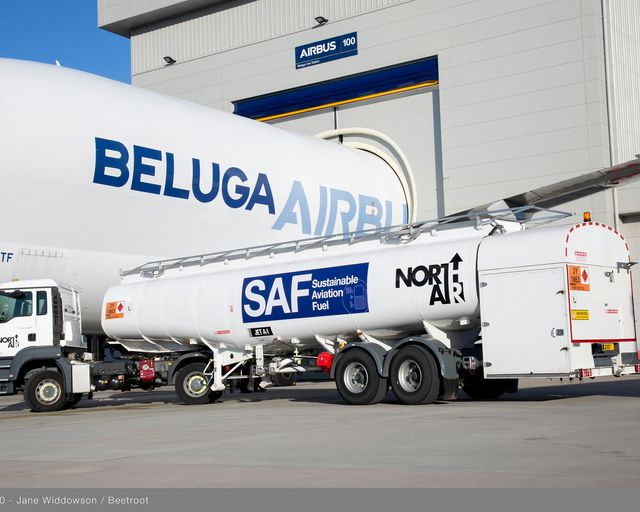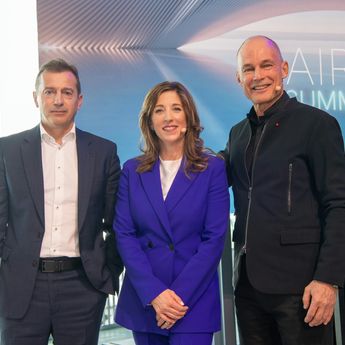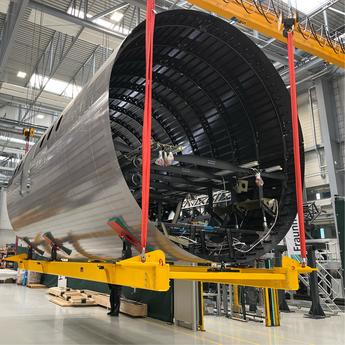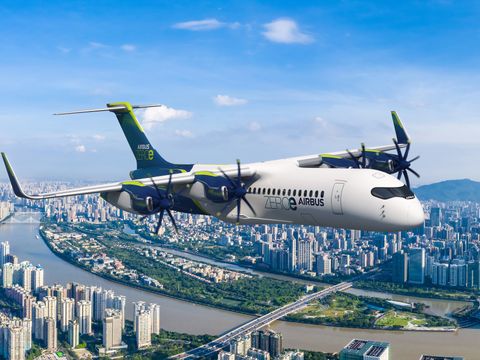The fourth revolution in aviation
The aviation industry has been forged by four revolutions. The first came over 100 years ago, when the first aircraft successfully took to the skies. The second was – and is – to make aviation safer. The third revolution has been making flight available and affordable to people everywhere. Now aviation has entered its fourth revolution, related to decarbonisation and adjacent areas.
For over 50 years, Airbus has been a trailblazer. Innovations like the introduction of fly-by-wire technology and the launch of the first-ever widebody twin-engine airliner, among many others have led us to develop safer, more fuel-efficient products, sharpening the competitiveness of the aircraft themselves, and those who operate them.
Today, Airbus is investigating multiple decarbonisation levers including fleet renewal, operational improvements, sustainable aviation fuels, hydrogen, hybridisation and electrification, and carbon capture and storage. Our aim is that advancements in these key areas will drive progress towards the aviation industry’s long-term aspirational goal of reaching net-zero carbon emissions by 2050, as set by ATAG, IATA and ICAO.

Fleet renewal
Reducing fuel burn
We are constantly improving our existing fleet, optimising wings and engines, and using lighter materials to make our products more fuel-efficient. Our latest generation family of aircraft offer around 25% greater efficiency compared to the previous generations. Today, around 30% of the world’s in-service aircraft fleet are of the latest generation, which deliver a 20-30% fuel saving compared to their predecessors.

Sustainable aviation fuels
Advancing the ecosystem
Today, all Airbus aircraft and helicopters are capable of operating on a 50% blend of SAF. Today, sustainable aviation fuel allows an average 80% CO2 reduction across the SAF lifecycle. Our objective is to enable all our commercial and military aircraft and helicopters to be able to operate on up to 100% SAF by 2030.
Impactful partnerships to tackle climate change
To achieve our own targets, and contribute to the aviation industry’s shared goals, we understand that we cannot move forward alone. This is why we align our climate action plan to a variety of industry-wide environmental principles and targets driven by organisations in which Airbus plays a leading role.
- ATAG: The Air Transport Action Group is a global independent body that brings together the entire aviation industry to promote sustainable growth that benefits society.
- Clean Aviation: The Clean Aviation Joint Undertaking aims to develop disruptive new aircraft technologies to support the European Green Deal, and the IATA, ATAG and ICAO shared ambition of net-zero carbon emissions by 2050. The Clean Aviation Joint Undertaking runs from 2021-2031 and boasts a budget of EUR 4.1 billion. We are a founding member.
- Hydrogen Council: This global initiative brings together energy, transport and industry companies to deliver a united vision and long-term ambition for hydrogen in fostering the energy transition. We are currently a member of the Hydrogen Council to benefit from the huge cross-industry experience on hydrogen.
- IAEG: The International Aerospace Environmental Group promotes global standards for greenhouse gas emissions reporting, substances management and substitution technologies. We are a founding member of IAEG.
- SESAR 3: We are a founding member of the SESAR 3 Joint Undertaking. This European private-public sector partnership aims to harness research and innovation to accelerate the delivery of the Digital European Sky.
The latest in decarbonisation
In the spotlight
-

Stories Sustainability
Airbus Foundation and Solar Impulse Foundation launch call for projects
Airbus Foundation, Solar Impulse Foundation and Space4Good launch call for projects that address nature-based climate resilience. -

Press releases Sustainability
Airbus Foundation joins forces with the Solar Impulse Foundation to boost climate…
-
Press Release Sustainability
Airbus signs MoU to collaborate on pure Japan-domestic wood-based SAF
-

Stories Innovation
Fantastic thermoplastics
-

Press releases Space
Airbus to build two radiometers for CNES for use on NASA/JAXA international climate…





